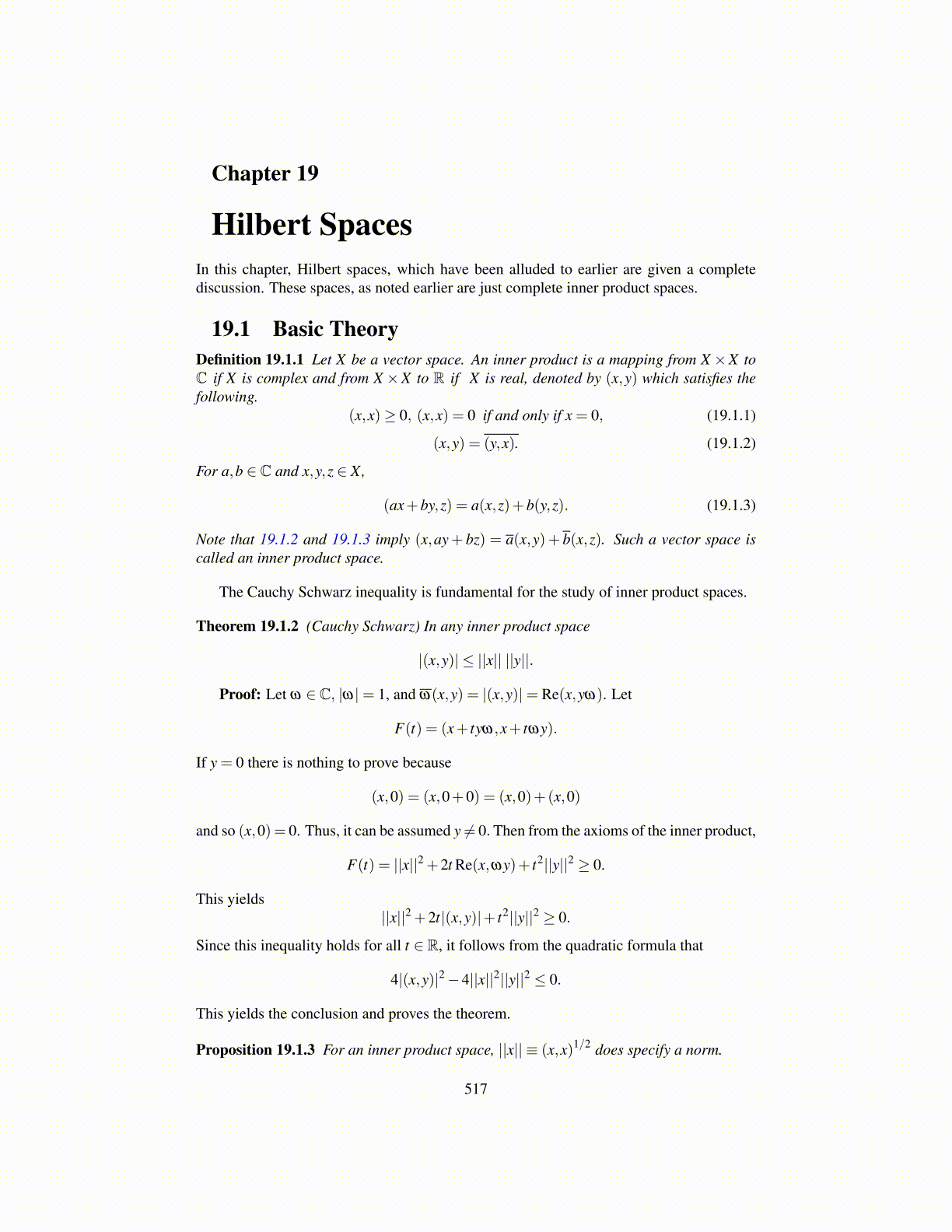
Chapter 19
Hilbert SpacesIn this chapter, Hilbert spaces, which have been alluded to earlier are given a completediscussion. These spaces, as noted earlier are just complete inner product spaces.
19.1 Basic TheoryDefinition 19.1.1 Let X be a vector space. An inner product is a mapping from X ×X toC if X is complex and from X ×X to R if X is real, denoted by (x,y) which satisfies thefollowing.
(x,x)≥ 0, (x,x) = 0 if and only if x = 0, (19.1.1)
(x,y) = (y,x). (19.1.2)
For a,b ∈ C and x,y,z ∈ X,
(ax+by,z) = a(x,z)+b(y,z). (19.1.3)
Note that 19.1.2 and 19.1.3 imply (x,ay+ bz) = a(x,y)+ b(x,z). Such a vector space iscalled an inner product space.
The Cauchy Schwarz inequality is fundamental for the study of inner product spaces.
Theorem 19.1.2 (Cauchy Schwarz) In any inner product space
|(x,y)| ≤ ||x|| ||y||.
Proof: Let ω ∈ C, |ω|= 1, and ω(x,y) = |(x,y)|= Re(x,yω). Let
F(t) = (x+ tyω,x+ tωy).
If y = 0 there is nothing to prove because
(x,0) = (x,0+0) = (x,0)+(x,0)
and so (x,0) = 0. Thus, it can be assumed y ̸= 0.Then from the axioms of the inner product,
F(t) = ||x||2 +2t Re(x,ωy)+ t2||y||2 ≥ 0.
This yields||x||2 +2t|(x,y)|+ t2||y||2 ≥ 0.
Since this inequality holds for all t ∈ R, it follows from the quadratic formula that
4|(x,y)|2−4||x||2||y||2 ≤ 0.
This yields the conclusion and proves the theorem.
Proposition 19.1.3 For an inner product space, ||x|| ≡ (x,x)1/2 does specify a norm.
517